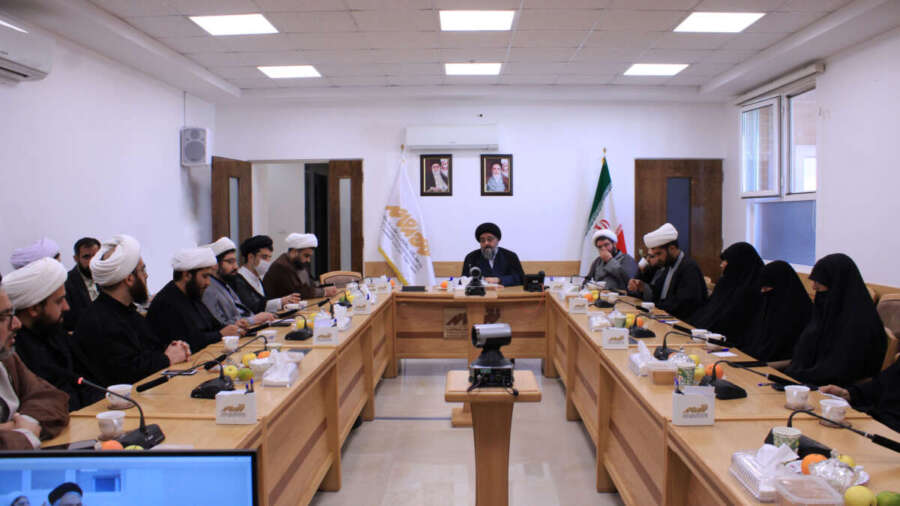Note: This scientific session was held on Thursday morning at the Research Institute for Studies in Contemporary Jurisprudence, during which the president of the institute emphasized the importance of novel methods for attracting and training elite seminarians, explained the difference between specialized fiqh and systemic fiqh, and considered the need for new usuli rules and fresh sources in jurisprudential inference as the most important challenge in this arena.
According to the information base of the Research Institute for Studies in Contemporary Jurisprudence, on Thursday morning, a group of seminarians and scholars from the Higher School of Jurisprudence of Astan Quds Razavi visited various sections of this institute and participated in a synergy session.
In this meeting, Ayatollah Seyyed Mojtaba NurMufidi, while expressing pleasure at holding this session, emphasized the necessity of strengthening communication and scientific exchange between educational centers of fiqh and specialized research institutes, and considered novel initiatives in training seminarians and a specialized view of contemporary jurisprudence as a fundamental need.
The president of the Research Institute for Studies in Contemporary Jurisprudence, referring to new methods of attracting and training talented seminarians, stated: “That elite seminarians are evaluated from various aspects and then selected in several stages for such a responsibility and mission is a novel and valuable method that is rarely seen in similar institutions.”
The professor of advanced fiqh lessons in the Qom seminary, in continuation, referring to the scientific circles of the Higher School of Jurisprudence, evaluated this approach as “a serious entry into the arena of contemporary jurisprudence” and added: “Extracting social systems from the text of fiqh is itself a new and contemporary view.”
He, by expressing the differences between “specialized fiqh” and “systemic fiqh,” noted: “The specialization of fiqh does not necessarily mean becoming governmental or entering systemic fiqh; rather, it can be a scientific and independent approach for responding to emerging needs.”
Ayatollah NurMufidi also considered the need of contemporary jurisprudence for new usuli rules and fresh sources in inference as the most important challenge in this arena and added: “Tools that lead to the formation of new approaches in jurisprudential inference are very important; although reaching them is time-consuming and difficult.”
The professor of advanced fiqh lessons in the Qom seminary, at the end, considered this scientific meeting an opportunity for exchanging views on the future of contemporary jurisprudence and novel methods of training seminarians, and by raising key points, emphasized the necessity of moving from purely traditional education toward training researchers with a systemic, specialized view aligned with the needs of today’s society.
The president of the Research Institute for Studies in Contemporary Jurisprudence noted that this path requires precise planning, novel tools, and continuous effort to be able to respond to the expectations of the new generation of the seminary and the current needs of society.

